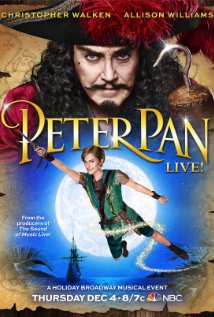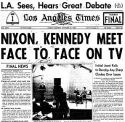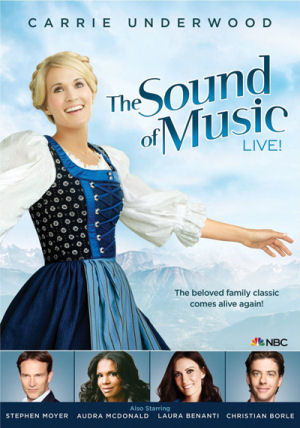 I just posted my last write-up for 2014, so it is probably worth looking back at my entertainment (theatre, ♦ concerts, ◊ movies, and ⊗ other reviewed stuff) year. Here’s what I saw in 2014:
I just posted my last write-up for 2014, so it is probably worth looking back at my entertainment (theatre, ♦ concerts, ◊ movies, and ⊗ other reviewed stuff) year. Here’s what I saw in 2014:
- January: ♦ Moonie and Broon Live (Colony Theatre); Mom’s Gift (Lonny Chapman Group Rep); ◊ Frozen (movie); I Love You, You’re Perfect, Now Change! (Repertory East Playhouse)
- February: Vanya and Sonia and Masha and Spike (Mark Taper Forum/CTG); Discord: The Gospel According to Charles Dickens, Thomas Jefferson, and Leo Tolstoy (NoHo Arts Center); Forever Plaid (Cabrillo Music Theatre); Lysistrata Jones (Chance Theatre); ⊗ Harvey’s Comedy Club (in Portland OR); Aida (Brunish Theatre, Portland OR)
- March: The Foreigner (Crown City); Sex and Education (Colony Theatre); Biloxi Blues (Repertory East Playhouse); Inherit the Wind (Grove Theatre Center); Harmony (Ahmanson Theatre/CTG); Author, Author: An Evening with Sholom Aleichem (Santa Monica Playhouse)
- April: In The Heights (Cabrillo Music Theatre); The Tallest Tree in the Forest (Mark Taper Forum/CTG); ♦ A Night at the Rock Opera (Repertory East Playhouse); ♦ Noel Paul Stookey (McCabes)
- May: ♦ Jason Alexander (Harrahs); ♦ Blue Man Group (Monte Carlo); Evil Dead: The Musical (Saxe Productions/V Theatre); Hairspray (Nobel Middle School); The Lion in Winter (Colony Theatre); Gershwin’s Porgy and Bess (Ahmanson/CTG); Cat on a Hot Tin Roof (Repertory East Playhouse); Li’l Abner (LA City College Theatre Arts Dept.)
- June: Zombies from the Beyond – The Musical (Visceral Group); The Fantastiks (Good People Theatre); Solo-palooza (Repertory East Playhouse); Stoneface (Pasadena Playhouse); I’m Not Just a Comic Genius (Secret Rose); ⊗ To Theo, L’Chaim, To Life (Saban Theatre)
- July: Ghost: The Musical (Pantages Theatre); Return to the Forbidden Planet – The Musical (Repertory East Playhouse); Once: A New Musical (Pantages Theatre); Bye, Bye, Birdie (Cabrillo Music Theatre); The Heist (Operaworks)
- August: Hair (Hollywood Bowl); Family Planning (Colony Theatre); Buyer and Cellar (Mark Taper Forum/CTG); Broadway Bound (Odyssey Theatre); It Happened in Roswell – An Intergalactic Musical (NoHo Arts Center); Two Gentlemen of Verona (Old Globe, San Diego); Pageant (Cygnet Theatre, San Diego); An Adult Evening of Shel Silverstein (Repertory East Playhouse)
- September: ♦ Muse/ique: Summer of Sound (Muse/ique, Pasadena); Moon Over Buffalo (Grove Theatre Group); Bat Boy – The Musical (CSUN Theatre Arts); What I Learned in Paris (Colony Theatre); The Great Gatsby (Repertory East Playhouse)
- October: Don’t Hug Me, We’re Married (Lonny Chapman Group Rep); Pippin (Pantages Theatre); ♦ LA Symphonic Winds (LA Symphonic Winds)
- November: Big Fish (MTW); ⊗ The Genius of Stan Freberg (Egyptian Theatre); Handle with Care (Colony Theatre); Sherlock Holmes and the Adventures of the Suicide Club (Repertory East Playhouse); Harvey (Palo Alto Players, Palo Alto); The Immigrant (Tabard Theatre, San Jose); Kinky Boots – The Musical (Pantages)
- December: Joseph and the Amazing Technicolor Dreamcoat (Nobel Middle School); ◊ Peter Pan Live (NBC); She Loves Me (Chance Theatre); ♦ Austin Lounge Lizards (Boulevard Music); ◊ The Imitation Game (movie); and A Christmas Carol (ZJU)
All told, 2014 saw us at 53 live theatre shows, 6 concerts, 1 comedy show, 2 tribute nights, and 3 movies or TV equivalents.
So out of all of this, what were the most memorable items of the year?
I think the most impactful show was Sex and Education at the Colony. I quote that show regularly: it taught me an important lesson: to convince an audience, don’t write what you think will convince them. Instead, get into their head and write what they think will convince them. It’s an important message — convincing someone by presenting the argument that works for them.
I think the most impactful situation was the bru-ha-ha over REP’s Cat on a Hot Tin Roof. The production itself was excellent. Two shows after we saw it, an audience member either got drunk or acted drunk and made homosexual slurs. An actor went into the audience before calling theatre staff and physically threatened the patron. After the incident, the theatre fired the actor for that behavior and was forced to close the show. The fired actor and his friends put the story on the Internet, and the theatre’s name was dragged through the mud (I was one of the few voices able, for legal reasons, to speak up for them). About a week after the incident a version of the production showed up at another theatre (without proper licensing), with many of the original cast but sans the original director, as a “benefit” (and the actor and that production were cited). The Santa Clarita community and REP regulars rallied around REP with a number of fundraisers, and the theatre came out of it OK. It goes to prove the adage: do something great, or do something awful — in either case, they’ll remember your name.
I think the production that made me think the most was Discord, which reappeared later in the year at the Geffen. An intense theological discussion similar to Meeting of Minds, it made one see the bible and the New Testament — indeed, the impact of Jesus — in a new light. I still remember Jefferson’s comment that if you remove all the miracles from the New Testament, the story is even more miraculous: a simple man who through the power of conviction was able to change the world.
We had a number of science fiction or similarly themed musicals: Zombies from the Beyond, Evil Dead: The Musical, Return to the Forbidden Planet, Roswell. All were great fun and demonstrate that the genre can be a hoot if done right. Bat Boy – The Musical deserves some special mention, as the songs and the story go beyond the normal parody type story to make an even larger statement about society.
There were a number of shows that were extremely moving: The Immigrant at Tabard Theatre was astounding in its characterizations; Big Fish at MTW was just a delight in the scope of its story, and Harmony at the Ahmanson was amazing in its significance and impact.
There were some truly classic shows, in addition (of course) to Cat on a Hot Tin Roof. Shows like Inherit the Wind at GTC, Harvey at Palo Alto Players, and The Great Gatsby at REP East. There were also some classic musicals, expertly done: Li’l Abner at LA City College, She Loves Me at Chance, and Bye Bye Birdie at Cabrillo.
There were some once-in-a-lifetime shows, notably the tributes to Stan Freberg and Theo Bikel, where we were were sharing the theatre with major industry people. Only in Los Angeles. Our other concerts weren’t slouches either, in particular Noel Paul Stookey‘s concert at McCabes and the long-awaited return of the Austin Lounge Lizards.
I’m not the type that gives meaningless awards. I can’t say who was a best actor, or what was the best show that I saw. Certainly, I can’t judge what was the best show in Los Angeles. I can tell you which performances I enjoyed and stayed with me the most. Weekly, I can share with you the impressions of what I see; I hope that they help you in discovering all the entertainment possible in Southern California.
May you have the happiest of new years, and may 2015 bring you a year of wonderful entertainment, theatre, and concerts. Want to know how to afford going to so much theatre? Look at my post on discount theatre options.



 Last night was the second live musical in a new NBC tradition: live theatre as a Christmas special. Last year, there was “
Last night was the second live musical in a new NBC tradition: live theatre as a Christmas special. Last year, there was “ An
An  In the Talmud, there is a learned Rabbi who opines that groupatwos are to be considered Chametz during Passover. Luckily, this week was so busy I accumulated a bunch of groupatwos. So let’s get that feather and that candle and get them out of the links list before Passover starts Monday night:
In the Talmud, there is a learned Rabbi who opines that groupatwos are to be considered Chametz during Passover. Luckily, this week was so busy I accumulated a bunch of groupatwos. So let’s get that feather and that candle and get them out of the links list before Passover starts Monday night: Here are three stories of historical “air”s that caught my eye over the last few days:
Here are three stories of historical “air”s that caught my eye over the last few days: In the comments for
In the comments for 